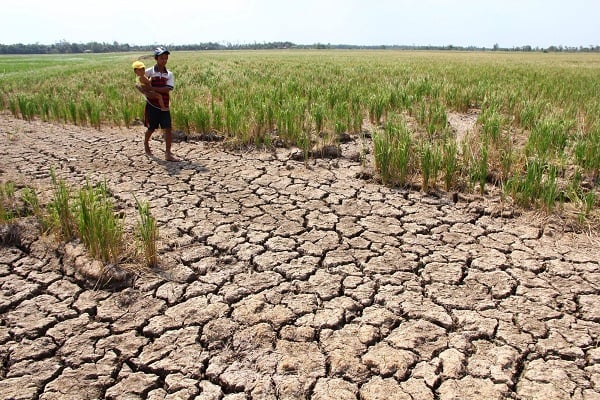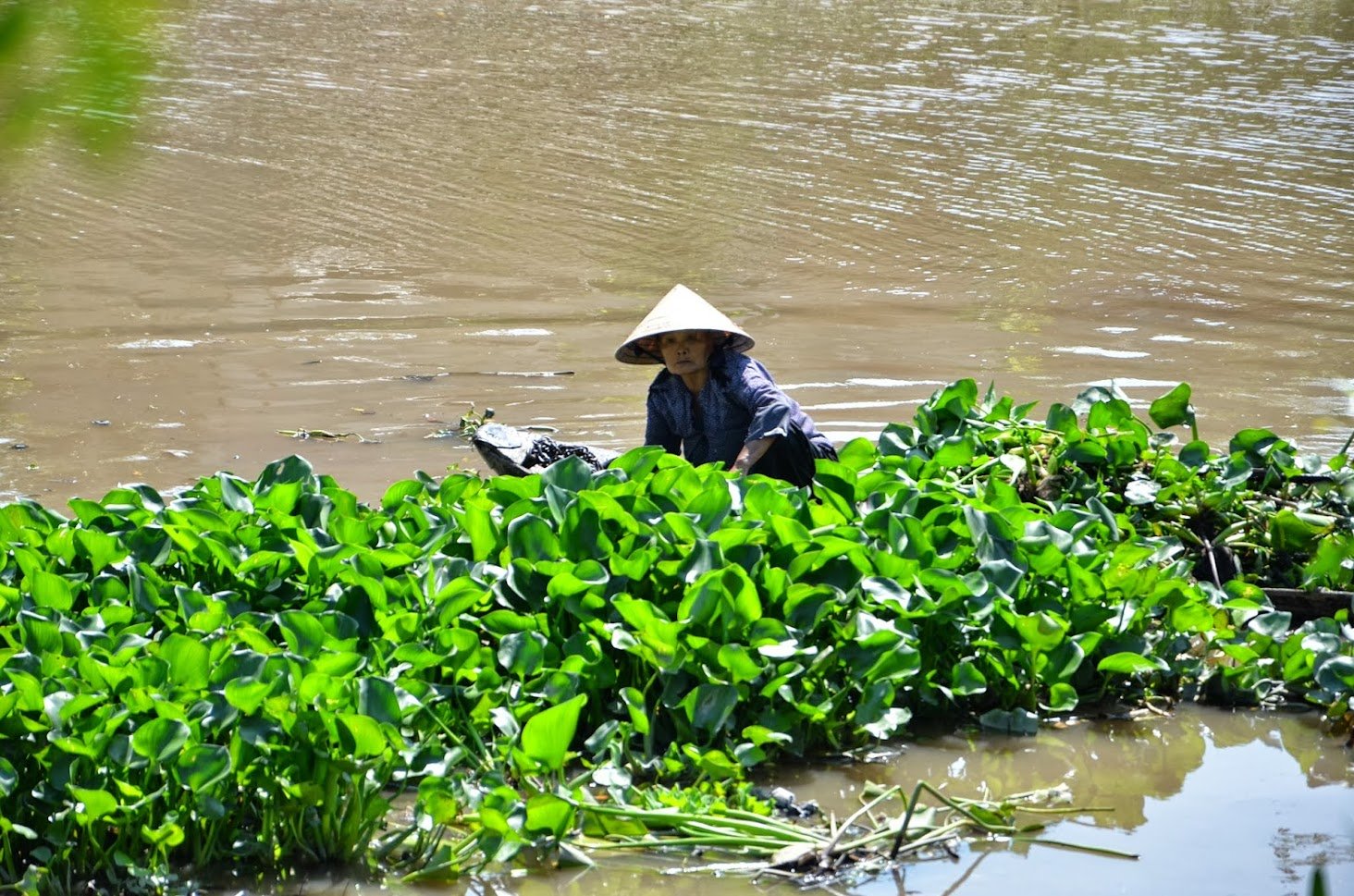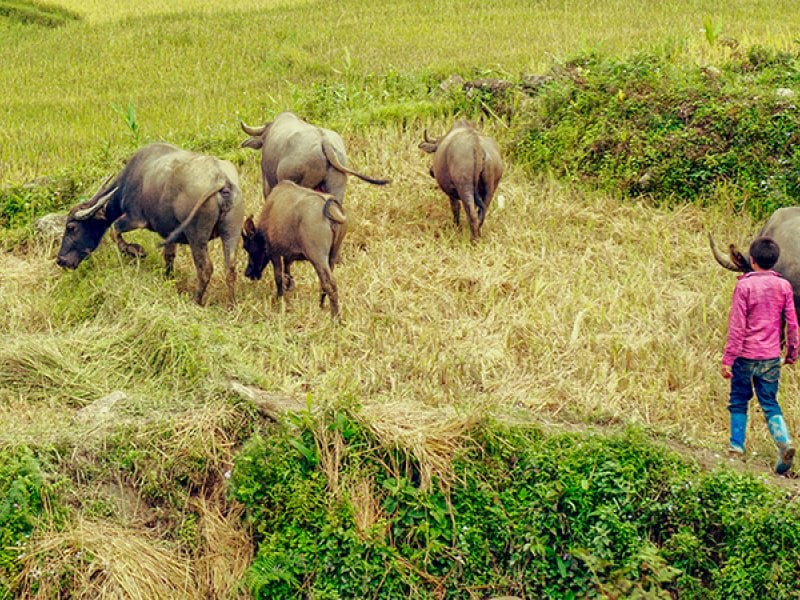June 16, 2025 | 11:36 GMT +7
June 16, 2025 | 11:36 GMT +7
Hotline: 0913.378.918
June 16, 2025 | 11:36 GMT +7
Hotline: 0913.378.918
By 2026, people in Vietnam will benefit from and contribute to a safer and cleaner environment resulting from the country’s effective mitigation and adaptation to climate change, disaster risk reduction, resilience building, promotion of a circular economy, the provision of clean and renewable energy, and the sustainable management of natural resources.

One of the challenges driving Vietnam's vulnerability to climate change is its limited capacity to reduce the negative impacts of climate change, and environmental degradation on human development.
Four key challenges are driving Vietnam’s vulnerability to climate change and natural disasters, environmental degradation, and the unsustainable management of natural resources, which include unmitigated climate change risks and response to disasters leaving vulnerable populations acutely exposed, and accelerating gender and social inequality; low awareness and engagement in low carbon development, the circular economy, and environmental protection that might otherwise reduce environmental pollution; limited institutional capacity, unsustainable development investments, and the unsustainable management and use of natural resources, conservation of biodiversity and ecosystems; and limited capacity to reduce the negative impacts of climate change, and environmental degradation on human development.
The UN will work to identify unmitigated risks from disaster and climate change to build resilience for vulnerable populations through the development of an enhanced risk transfer and insurance system; the promotion of resilient and sustainable agri-food systems; as well as through strengthening the legal gender-responsive framework, technical and management capacity, and financing mechanisms.

The UN will address sustainable management and use of natural resources and effective conservation of biodiversity and ecosystems.
The UN will support improved energy efficiency, innovations for clean technologies, resource efficiency, and sustainable production and consumption in key sectors and industrial parks.
The UN will address sustainable management and use of natural resources and effective conservation of biodiversity and ecosystems through enhancing capacity, policy, and mandates to support the coherent and sustainable management of biodiversity and habitats, as well as the prevention of wildlife trafficking and consumption. The UN will devise strategies to promote co-management schemes that ensure local communities enjoy their human rights and benefit from resilient development and sustainable tourism, as well as contribute to biodiversity conservation and natural resource management.

The UN will work to reduce the negative impacts of climate change and environmental degradation on human development and human rights.
The UN’s strategic interventions will include enhancing the institutional management capacity of heritage and cultural resources; reinforcing development strategies at the level of cities and encouraging public-private sector dialogues; strengthening institutional capacity in governance and financing modality of technology business incubators; strengthening and promoting linkages and synergies between food processing, handicraft, tourism and the creative industries for local economic development and women’s economic development; and strengthening integrated urban policies with interrelated socioeconomic, environmental and cultural strategies to promote national and regional economic growth and prosperity.
The UN will seek to prioritize vulnerable MSMEs and informal sector employment (especially those led by women, People With Disability [PWDs], and ethnic minorities) to enable a bounceback from the impacts of COVID-19 and to enable Vietnam to build resilience to other shocks, while becoming greener and more energy efficient; enhance domestic value-addition and productivity; grow domestic markets and consumer demand; connect firms to domestic and global value chains and reduce other bottlenecks for the growth of Vietnam’s Micro-sized, Small and Medium-sized Enterprises (MSMEs).

UN will seek to connect firms to domestic and global value chains and reduce other bottlenecks for the growth of Vietnam's MSMEs.
The UN will also focus on innovative approaches to improve inclusion, such as developing strategies to mainstream digital services across all sectors as part of broadening the digital economy; promoting e-commerce adoption among MSMEs and cooperatives; developing innovative platforms for children and young people, particularly girls and young women, to learn and improve their skills for future employment; and developing and enforcing labor market policies for re-skilling of migrant and informal workers, particularly female workers in a digital economy.
The UN will work to reduce the negative impacts of climate change and environmental degradation on human development and human rights through increased public awareness of climate change and environmental degradation on human development and support mechanisms for families, women, and children who experience multiple impacts from climate change and disasters. The UN will prioritize support for the prevention and preparedness for the next pandemic by improving human-animal-environment interface management.
Translated by Linh Linh

(VAN) The working delegation from the Ministry of Agriculture and Environment conducted an important trip to the Netherlands to strengthen strategic partnerships and sustainable development in the agricultural sector.

(VAN) The letter ‘A Plea from the Ocean’ not only evokes emotion but also awakens the human conscience to the responsibility of protecting life on Earth.

(VAN) The Department of Agriculture in South Africa has announced the country’s first mass vaccination of poultry to prevent local birds from contracting avian influenza.

(VAN) Establishment of the Mekong Delta Regional Agricultural Linkage Center, aiming for a closed value chain, deep processing, trading platforms, and international market connectivity.

(VAN) Gia Lai province has recently recorded 460 rare species of animals and plants, contributing to forest conservation and biodiversity planning in the region.

(VAN) Ms. Caroline Beresford, New Zealand Ambassador to Vietnam, expressed confidence that agricultural cooperation between Vietnam and New Zealand will develop sustainably, be climate-resilient, and promote gender equality.

(VAN) Vietnam reaffirms its commitment to international cooperation in fostering sustainable and responsible fisheries while ensuring resilient livelihoods for small-scale fishing communities.